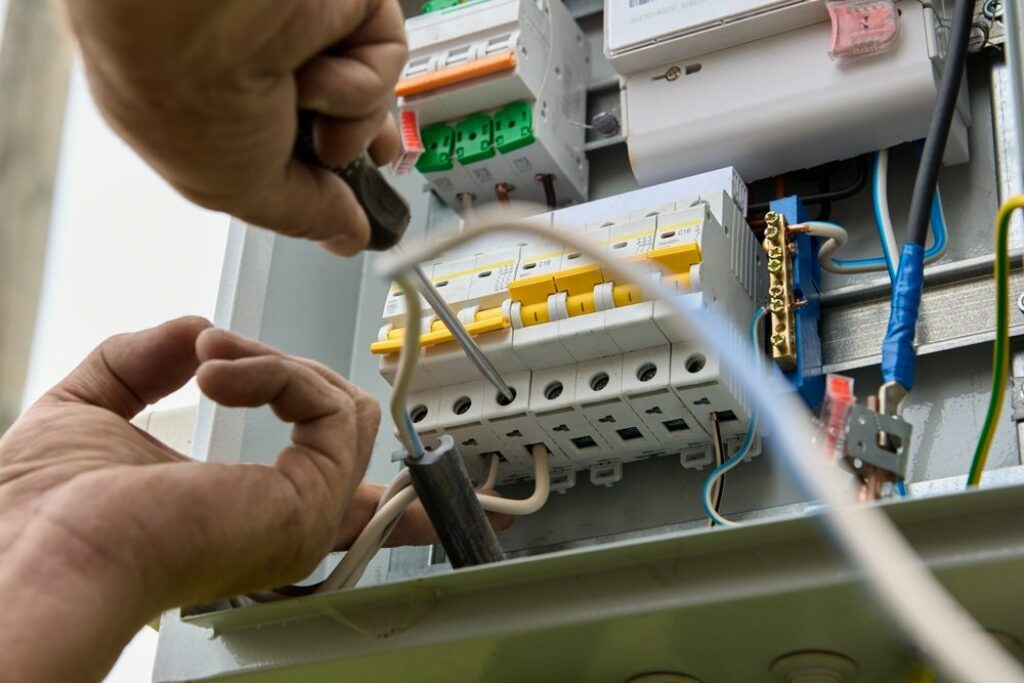
Home Electrical Panel Upgrades and What They Can Do For You
Every time you flick on a light, turn on the AC or cook something delicious on your electric stove, the electrical panel is hard at work. This essential component provides your home with a steady flow of electricity to power your appliances and daily needs.
Related Topics (Sponsored Ads):
An electrical panel, also known as a breaker box or fuse box, is the heart of a home’s electrical system. It contains many on / off switches that control individual systems around the home, such as the lightbulbs, the AC, the washing machine and even the smoke detector. Over time however, the electrical needs of a household may increase, requiring an upgrade to the existing panel. An overloaded panel and power surges can cause burn out, fires and other hazards. For this reason, home electrical panel upgrades are essential for ensuring safety, reliability, and adequate power supply.
In the guide below, we will explore seven different types of home electrical panel upgrades, along with their specific examples, benefits, and suitability.

Understanding Electrical Panel Upgrades
Before delving into specific upgrades, it’s important to first understand the purpose of an electrical panel upgrade. Upgrading your panel involves replacing the existing panel and associated components to accommodate increased electrical capacity and ensure the safe distribution of electricity throughout your home. These improvements will enhance safety, increase energy efficiency, and accommodate additional electrical loads.
As technology advances and homeowners add more electrical devices and appliances, the demand for power inevitably increases. For instance, a main service panel upgrade can provide additional circuit spaces and higher amperage capacity, accommodating the installation of new appliances like electric vehicle chargers, hot tubs, or home theater systems.
Main Electrical Service Panel Upgrade
The main electrical service panel upgrade involves replacing the existing panel with a larger one to accommodate higher electrical demands. This upgrade is necessary when adding new appliances, renovating the home, or increasing the number of circuits.
For instance, upgrading from a 100-amp panel to a 200-amp panel allows for more circuits and increased power capacity. Benefits of this upgrade include improved safety, reduced risk of electrical overload, and enhanced functionality for modern electrical devices.
Subpanel Installation
A subpanel installation is a popular upgrade when additional circuits are needed in specific areas of the home, such as a garage, basement, or workshop. This upgrade involves installing a smaller electrical panel connected to the main panel. This allows for better distribution of power, and prevents overloading the main panel.
A subpanel dedicated to a workshop can provide separate circuits for power tools, lighting, and other equipment. The benefits of a subpanel installation include increased convenience, improved electrical efficiency, and enhanced organization of circuits.
AFCI and GFCI Protection
Arc Fault Circuit Interrupters (AFCIs) and Ground Fault Circuit Interrupters (GFCIs) are advanced safety devices that protect against electrical hazards. Upgrading to AFCI and GFCI protection involves replacing standard circuit breakers or outlets with AFCI and GFCI versions.
AFCIs detect dangerous arc faults, while GFCIs monitor for ground faults, reducing the risk of electrical shocks and fires. This upgrade is particularly beneficial in areas prone to moisture, such as kitchens, bathrooms, and outdoor outlets.
Surge Protection
Surge protection is crucial for safeguarding sensitive electronics and appliances against power surges caused by lightning strikes or utility grid fluctuations. Upgrading to whole-house surge protection involves installing surge protection devices (SPDs) at the main electrical panel.
These vital devices divert excess voltage to the ground, protecting all connected devices. The benefits of surge protection include increased lifespan of electronics, reduced risk of damage, and enhanced peace of mind.
Smart Home Integration
In the era of smart homes, upgrading the electrical panel for smart home integration can significantly enhance convenience and energy efficiency. This upgrade involves installing a panel with integrated smart home technology, such as built-in Wi-Fi capabilities or compatibility with smart home hubs.
With a smart panel, homeowners can remotely monitor and control various electrical functions, including lighting, thermostats, and security systems. The benefits of smart home integration include enhanced energy management, increased comfort, and improved security.
Energy-Efficient Panel Upgrades and Solar Panel Integration
Energy-efficient panel upgrades focus on reducing energy consumption and optimizing electrical efficiency. Choosing to upgrade to an energy-efficient panel with advanced circuitry and components can minimize power losses, leading to lower energy bills.
Additionally, some panels feature energy monitoring capabilities, allowing homeowners to track their electricity usage in real-time and make informed decisions about energy conservation. Solar panel integration in particular involves upgrading the electrical panel to accommodate a solar power system. This allows for seamless connection and management of solar panels, inverters, and battery storage systems.
Harnessing the incredible power of the sun, homeowners can harness clean, renewable energy and potentially reduce their dependence on the grid. The benefits of solar panel integration include lower energy costs, reduced dependency on the electric company, reduced carbon footprint, and potential eligibility for government incentives and rebates.
Final Thoughts
Whether it’s upgrading the main panel, installing subpanels, adding AFCI and GFCI protection, implementing surge protection, integrating smart home technology, opting for energy-efficient panels or enabling solar panel integration, each previously mentioned upgrade offers specific benefits and suitability based on individual needs.
It’s highly recommended to not attempt to install these upgrades on your own, and hire a professional to do it for you instead. Consulting a licensed electrician is crucial to determine the most appropriate upgrade and ensure compliance with local electrical codes. Thanks to these upgrades, homeowners can now enjoy a safer, more efficient electrical system for years to come.




